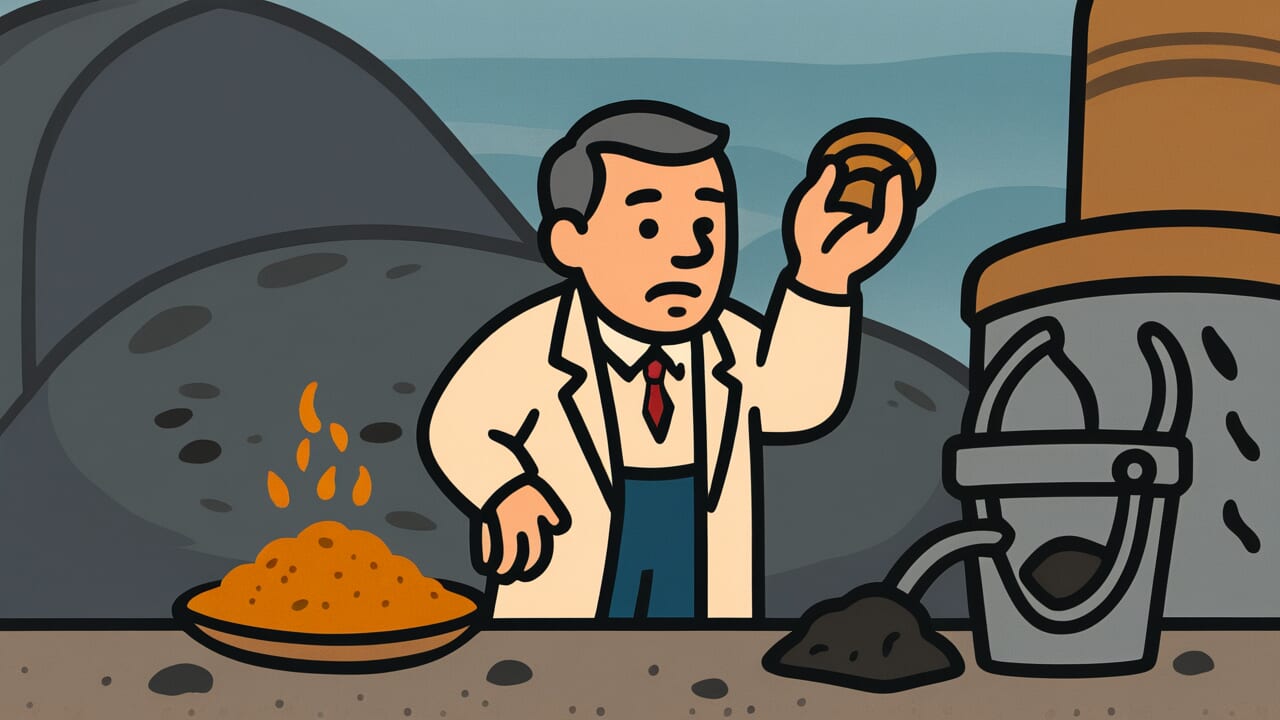How to Read “The rich and ashtrays get dirtier as they accumulate”
Kanemochi to haifuki wa tamaru hodo kitanai
Meaning of “The rich and ashtrays get dirtier as they accumulate”
This proverb means that wealth and unnecessary things create dirt and problems as they pile up.
When rich people increase their wealth, they sometimes use dishonest methods or deceive others. Just like ash accumulates and dirties an ashtray, their hearts and actions become corrupted.
The saying also teaches that hoarding unnecessary items causes them to become sources of filth themselves.
People use this proverb to warn against accumulating wealth or hoarding possessions. It doesn’t condemn having money or things.
Instead, it points out problems that arise during the accumulation process or after things pile up. Even today, this saying applies when discussing excessive attachment to wealth or the problems of hoarding.
Origin and Etymology
No clear written records explain the origin of this proverb. However, the structure of the phrase offers interesting insights.
“Haifuki” was a smoking tool widely used during the Edo period. Made from bamboo tubes or pottery, it served as a container for tobacco ash.
People dropped their finished tobacco ash into these containers. They started clean, but continued use made ash accumulate. Tar stuck to the sides, and the gradual dirtying was obvious to everyone.
The pairing with “rich people” might seem strange at first. But it shows the sharp observation of common people.
They noticed how wealth accumulation sometimes involved dishonest methods, trampling others, or being blinded by greed. They compared this to ash accumulating and dirtying an ashtray.
During the Edo period’s townspeople culture, many metaphors used everyday items. This proverb represents the crystallized wisdom of common people.
Through the familiar ashtray, they sharply captured the essence of human society.
Interesting Facts
Edo period ashtrays weren’t just smoking tools. They were status symbols of sorts.
High-quality porcelain or lacquered ashtrays showed the owner’s economic power. People treasured them as displays of wealth.
But no matter how expensive an ashtray was, continued use inevitably dirtied it. This unavoidable reality strengthened the proverb’s persuasive power.
Cleaning ashtrays required surprisingly tedious work. You had to empty accumulated ash, wipe away tar, and maintain cleanliness through regular care.
The longer you neglected it, the more stubborn the dirt became. Eventually it reached an irreversible state.
This characteristic perfectly overlaps with lessons about managing wealth and possessions.
Usage Examples
- That company president suddenly got rich, but “The rich and ashtrays get dirtier as they accumulate”—he ended up arrested for tax evasion
- When I cleaned out my family’s storage shed, “The rich and ashtrays get dirtier as they accumulate” really rang true—nothing but useless items covered in dust
Universal Wisdom
This proverb offers deep insight into the dual nature of accumulation. Humans have an instinctive urge to “store” and “collect.”
This was rational behavior for survival. But our ancestors saw the paradox: the act of accumulation itself eventually becomes the seed of problems.
When increasing wealth, there may be legitimate effort and ingenuity at first. But as it grows larger, dangers emerge.
People may stop caring about methods, relationships become distorted, and hearts grow rough. Just like an ashtray starts clean but inevitably dirties with use, accumulation carries unavoidable “filth.”
The same applies to possessions. Things you kept thinking they were necessary eventually pile up beyond management.
They gather dust and actually lower your quality of life. Accumulation provides security but also becomes a burden.
This proverb sharply captures this essential truth about human activity.
The phrase “dirtier as they accumulate” contains a timeless truth: quantitative increase leads to qualitative deterioration. This reflects deep human understanding about our desires and their consequences.
When AI Hears This
The phenomenon where wealth and ash accumulation increase dirt surprisingly corresponds to the second law of thermodynamics: “entropy increase in closed systems.”
Entropy measures disorder or randomness. In isolated systems, it always increases over time.
If we view wealth accumulation by the rich as a “closed system,” this law activates. When wealth concentrates in one place, various stakeholders gather.
Information asymmetry emerges, and opportunities for misconduct multiply. As ordered energy called wealth gathers, moral disorder necessarily increases around it.
Ashtrays work the same way. As ash accumulates, moisture and impurities mix. Chemical reactions generate foul-smelling substances.
This is molecular-level disorder increasing.
What’s interesting is the law’s implication: “order cannot be maintained without external energy input.” Companies spend enormous costs on auditing and transparency.
This counters the natural disorder that wealth accumulation creates. Regularly emptying ash is also external intervention against entropy increase.
This proverb shows that moral insights about human society actually share the same structure as physical laws. Our ancestors empirically grasped the universe’s basic principle: wealth and matter inevitably become disordered when left alone.
Lessons for Today
This proverb teaches modern people the importance of “courage to let go.” We eagerly pursue gaining and increasing things.
But we tend to overlook the value of reducing and discarding.
Whether wealth, possessions, or information, we try to gain security through hoarding. But isn’t true richness about quality, not quantity?
Keep only what you need and manage it carefully. This prevents “dirt” both physically and mentally.
In modern society, information is also subject to accumulation. Smartphones fill with countless apps, photos, and messages.
Left alone, these create “dirt” too—you can’t find what you need, devices slow down.
What matters is the habit of regular review and organization. What do you really need? Why do you have it?
Asking these questions prevents problems from accumulation. Rather than storing, circulate. That’s the modern wisdom this proverb offers.



Comments